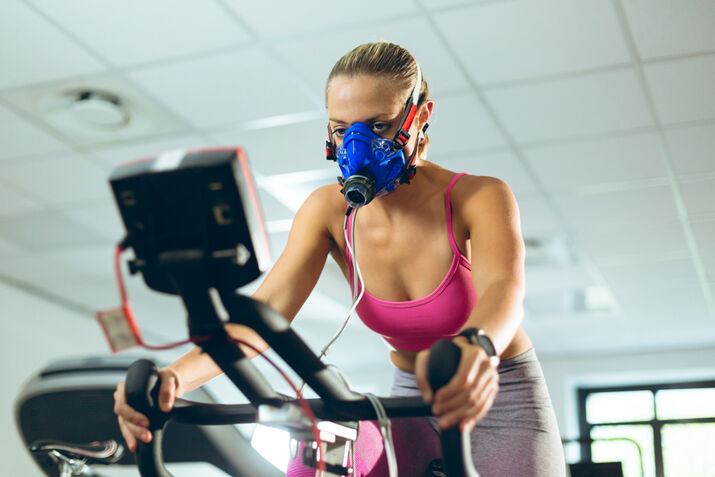Preparing for a VO2 max testing can be crucial for athletes and fitness enthusiasts looking to optimize their performance. This test measures the maximum amount of oxygen your body can utilize during intense exercise, serving as a key indicator of cardiovascular fitness. Here are some essential tips to help you prepare effectively.
Understand the Test Format
Before diving into preparation, familiarize yourself with the VO2 max test format. Typically conducted on a treadmill or stationary bike, the test gradually increases in intensity until exhaustion. Knowing what to expect can reduce anxiety and improve your performance.In the weeks leading up to your test, focus on endurance training. Incorporate longer, steady-state cardio sessions into your routine, along with interval training to help improve your aerobic capacity. Aim for a mix of high-intensity workouts and longer, low-intensity sessions to build a strong cardiovascular base.
Taper Your Workouts
In the week before the test, consider tapering your training. Reduce the intensity and volume of your workouts to allow your body to recover and be at its best on test day. This doesn’t mean you should stop exercising entirely; light workouts can help keep your body primed.Hydration plays a crucial role in your performance. In the days leading up to the test, ensure you’re drinking enough water. On the day of the test, aim to stay hydrated but avoid excessive water consumption right before the test to prevent discomfort.
Eat Wisely
Your diet in the days before the test can significantly impact your performance. Focus on a balanced diet rich in carbohydrates, proteins, and healthy fats. On the day of the test, consume a light meal that includes easily digestible carbs and avoid heavy foods that might weigh you down.Quality sleep is vital for peak performance. Ensure you’re getting enough rest in the nights leading up to your test. Aim for 7-9 hours of sleep to allow your body to recover and prepare for the exertion of the VO2 max test.
Dress for Success
Wear comfortable, moisture-wicking clothing and appropriate footwear for the test. Proper attire can enhance your comfort level and performance, allowing you to focus on the test rather than distractions caused by discomfort.The VO2 max test can be mentally challenging. Practice visualization techniques, imagining yourself successfully completing the test. Positive self-talk and mental preparation can help boost your confidence and performance.
Understand the Test
A VO2 Max test typically involves running on a treadmill or cycling on a stationary bike while gradually increasing the intensity of the exercise. Throughout the test, your oxygen consumption, carbon dioxide production, and heart rate will be monitored. Familiarizing yourself with the procedure can reduce anxiety and improve your performance on the day of the test.
Consult with a Professional
Before undertaking a VO2 Max test, it’s wise to consult with a sports scientist, trainer, or physician, especially if you have pre-existing health conditions. They can provide you with guidance tailored to your fitness level and help assess if the test is appropriate for you. Their expertise can also help alleviate any concerns you may have.
Follow a Training Plan
Leading up to the test, maintain a consistent training regimen. Focus on both aerobic and anaerobic workouts to prepare your body for the test. Incorporate a mix of long, steady-state runs or rides, along with interval training sessions that push your limits. This combination will improve your overall endurance and prepare your body for the intensity of the test.
Taper Your Training
In the week leading up to the VO2 Max test, consider tapering your training. This means reducing the intensity and volume of your workouts to allow your body to recover fully. Engaging in lighter activities or rest days can help ensure you’re at peak performance on test day. Avoid new or strenuous workouts right before the test to prevent fatigue.
Stay Hydrated
Hydration plays a vital role in your performance. Make sure to drink plenty of water in the days leading up to the test. On the day of the test, consume water regularly but avoid over-hydration, which can lead to discomfort during the test. Proper hydration will help your cardiovascular system function optimally.
Nutrition Matters
What you eat in the days leading up to the test can influence your performance. Focus on a balanced diet rich in carbohydrates, lean proteins, and healthy fats. Carbohydrates are particularly important, as they provide the energy needed for high-intensity exercise. On the day of the test, eat a light meal that is easy to digest, such as oatmeal or a banana, about 1-2 hours before the test. Avoid heavy meals, spicy foods, or anything that might upset your stomach.
Get Plenty of Rest
Sleep is crucial for optimal performance. Aim for 7-9 hours of quality sleep the night before your test. Being well-rested will enhance your focus, stamina, and overall performance. Avoid strenuous activities the day before, and consider engaging in relaxing activities to calm your mind.
Dress Appropriately
Wear comfortable and appropriate clothing for the test. Choose moisture-wicking fabrics that allow for maximum movement. Ensure that your footwear is suitable for the exercise modality you will be using (running shoes for treadmill tests, cycling shoes for bike tests). Proper attire will help you feel more comfortable and focused.
Mental Preparation
Mental readiness is just as important as physical preparation. Visualize yourself successfully completing the test. Positive thinking can boost your confidence and help reduce any pre-test anxiety. Set realistic expectations for your performance, and remember that the goal is to measure your fitness level, not to achieve perfection.
Understand Recovery Post-Test
After the VO2 Max test, your body will need time to recover. Hydrate and refuel with a balanced meal that includes carbohydrates and protein to aid recovery. Reflect on your performance, and consider discussing the results with your trainer or sports scientist for further insights into your fitness journey.
Arrive Early
On the day of the test, arrive early to acclimate to the environment. This allows you to settle in, ask any last-minute questions, and ensure all equipment is set up properly.During the test, listen carefully to the instructions from the tester. They will guide you through the process, helping you to perform at your best while ensuring your safety.
Conclusion
Preparing for a VO2 max test involves physical, nutritional, and mental readiness. By understanding the test format, tailoring your training, and focusing on hydration and nutrition, you can set yourself up for success. Remember to take care of your body and mind in the days leading up to the test, and you’ll be well on your way to achieving a stellar performance.



